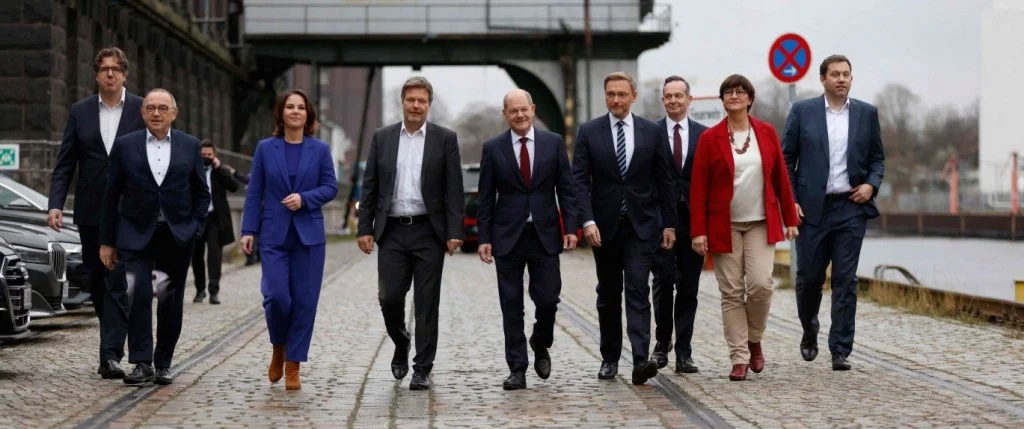The new German government mentioned cryptocurrency in its coalition agreement, with the goal of making the “European financial market supervisory regulation” suitable for crypto-assets and businesses

German government coalition agreement
The new German government has mentioned cryptocurrency in its coalition agreement, pushing for a level playing field between traditional finance and “creative business models.”
This week, three German political parties reached an agreement on a coalition pact that will see the left-leaning Social Democrats (SDP), the Green Party, and the right-leaning Free Democrats (FDP) take power in December.
According to a rough translation of the 177-page agreement issued on November 24, the alliance demands a new “dynamic in regard to the opportunities and hazards from new financial innovations” such as crypto assets and blockchain businesses:
“We are making European financial market supervisory law fit for digitization and for complex group structures in order to ensure holistic and risk-adequate supervision of new business models.”
“The crypto sector needs unified European monitoring.” “We require crypto asset service providers to identify the beneficial owners on a consistent basis,” the agreement reads.
According to the statement, the EU regulatory authority should “not only look after the traditional banking sector, but also prevent the exploitation of cryptocurrency values for money laundering and terrorist financing.”
Following the German federal election on September 26, the coalition was formed after two months of discussions, and it represents the end of Angela Merkel’s 16-year reign as Chancellor, who is retiring and will be replaced by the SDP’s Olaf Scholz.
The adoption of cryptocurrency is spreading throughout the EU
Elsewhere on the continent, the European Council, which determines the EU’s political agenda, approved two proposals: the ‘Regulation on Markets in Crypto Assets (MiCA) framework’ and the ‘Digital Operational Resilience Act’ (DORA).
MICA, in particular, proposes to create a “regulatory framework for the crypto-assets market that fosters innovation and draws on the potential of crypto-assets,” as drafted by the European Commission in September 2020.
While the European Parliament must yet ratify it if approved, it will subject crypto asset issuers to more strict standards, but nonfungible tokens (NFTs) and utility tokens will be exempt from the rule.
On Nov. 26, the progressive regulatory plan was characterized as the “most important one to date for the entire crypto business” by user “BelgianPolitics” on the r/CryptoCurrency subReddit.
At the time of writing, the Redditor’s study had nearly 900 comments and provided a full rundown of the proposed laws in MICA. The importance of the proposals was stressed by the author:
“Every entity operating in the European Union will be required to respect these rules.” However, because of the ‘Brussels Effect,’ there is a good chance that these rules will eventually become international standards. While everyone’s attention is focused on the United States and China, the EU is nonchalantly leading the way,” BelgianPolitics reported.
